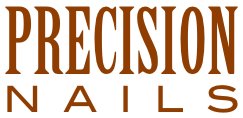(This five-part examination of proposed changes to California's manicuring curriculum highlights the failures of our present model of licensee training.)
California's Board of Barbering and Cosmetology has proposed changes to its manicuring curriculum, including an increase in required hours from 400 to 500. If done properly, the subsequent changes will make a constructive and significant impact on the manicuring profession for both consumers and licensees. If done poorly, the changes will make what has been acknowledged as a bad situation even worse.
The specific purpose of "revising the manicuring curriculum" should be to ensure that the required education produces licensed manicurists capable of working competently and safely in licensed establishments. A well-designed manicuring curriculum must be relevant, flexible and comprehensive. Based on scientifically accurate information, it must promote best practices, not perpetuate misinformation and an inadequate standard of practice as it does now.
Competence
The exceptionally poor work done by many manicurists undermines our profession and poses a serious risk to consumer safety. The average consumer mistakenly believes that a manicuring license proves technical competence. Why do we allow incompetent individuals to obtain licenses? Has the focus on safety obscured the benefits of requiring licensees to demonstrate quality work? If we continue to accept mediocrity as our standard of practice, we will continue to produce an incompetent workforce incapable of meeting the demands and expectations of consumers.
As a successful nail professional, I consider the competent performance of the following tasks fundamental to manicuring, regardless of "trends:"
• shaping the nails (trimming, filing, and buffing);
• conditioning the skin surrounding the nail (eponychium, not "cuticle");
• conditioning the skin of the hands and feet (exfoliating, moisturizing and massaging);
• smoothing (not removing) calluses;
• applying and removing polish;
• applying and removing artificial nails, including natural nail repairs;
• and most important, doing all of the above in a manner that protects the health and safety of consumers and the licensee.
Welcome to the Precision Nails Blog
As a salon owner and licensed manicurist, my perspective on the nail industry could not be more practical. While some may be offended by the opinions expressed, please understand that I want to share information and stimulate discussion. Whether you want your nails done or do nails professionally, I hope you find this blog both useful and interesting.
Jaime Schrabeck, Ph.D.
Materials on this website may not be reproduced, redistributed, transmitted, copied, cached, or otherwise used, without prior written consent of Jaime Schrabeck. To request consent, contact Jaime at consulting@precisionnails.com.
Jaime Schrabeck, Ph.D.
Friday, February 6, 2009
Subscribe to:
Post Comments (Atom)





No comments:
Post a Comment